United Bank for Africa (UBA) Plc is on the top list of companies with well-rounded performance. UBA’s top-of-the-chart performance at the stock market combines with considerable growth in all key fundamental indicators to make the bank the best performing banking stock in recent period. Capital Market Editor Taofik Salako, in this report, reviews the interplay of fundamental earnings and share price appreciation
United Bank for Africa (UBA) Plc outperformed all banking stocks in the first quarter of 2017 with a share price appreciation of 28.22 per cent. It had recorded the second highest price gain of 33.1 per cent in 2016, just slightly under three points behind Guaranty Trust Bank (GTB), which led the sector with 35.9 per cent.
Altogether, UBA’s share price had grown by more than 60 per cent in the past 15 months, the highest by any bank and one of the few bright spots in the long-running depression at the stock market. Average return at the Nigerian Stock Exchange (NSE) in the first quarter of 2017 was negative at -5.05 per cent.
The NSE Banking Index was down by 0.03 per cent while the NSE 30 Index, which tracks large-cap stocks, was almost on the average with a three-month return of -4.93 per cent. In 2016, the stock market had recorded a full-year average return of -6.17 per cent, equivalent to net capital loss of N604 billion.
Only 19 companies, including three banks, recorded a capital gain of 20 per cent and above in 2016, underlining the general downtrend that marked price changes during the period. A long-running depression had seen quoted equities losing N4 trillion in the past three years, including N1.75 trillion and N1.63 trillion in 2014 and 2015 respectively.
UBA’s share price appears to be riding on the crest of positive analysts’ reviews. There is almost analysts’ consensus on the attractiveness of the UBA. Investment research and rating firms such as Renaissance Capital, CSL Stockbrokers, Fitch and Augusto among others had maintained that UBA has strong fundamentals to support substantial price appreciation. UBA Group’s audited report and accounts for the year ended December 31, 2016 supported the positive view of its earnings potential, in spite of the Nigerian economic recession.
Improving earnings
Key extracts of the Group’s audited report showed impressive growths in the top-line and the bottom-line as it continued to expand its assets base. Group;s gross earnings rose by 21.9 per cent from N314.84 billion in 2015 to N383.65 billion in 2016. Interest income had grown by 15 per cent from N229.63 billion in 2015 to N263.97 billion.
With 2.9 per cent increase in interest expense from N96.03 billion to N98.77 billion, net interest income rose by 23.7 per cent to N165.2 billion in 2016 compared with N133.6 billion in 2015. This underlined the profitability of the group’s core banking business. Group profit before tax grew by 32.4 per cent to N90.64 billion in 2016 as against N68.45 billion in 2015. After taxes, net profit rose by 21.1 per cent from N59.65 billion to N72.26 billion. With these, earnings per share increased from N1.79 in 2015 to N2.04 in 2016.
UBA Group’s balance sheet also emerged stronger with total assets rising by 27.3 per cent from N2.75 trillion in 2015 to N3.5 trillion in 2016. Customers’ deposit rose by 19.7 per cent from N2.08 trillion to N2.49 trillion. Loans and advances recorded above average growth of 44.2 per cent to N1.50 trillion in 2016 as against N1.04 trillion in 2015, underlining the bank’s commitment to economic development. Shareholders’ funds also increased by 33.5 per cent from N325.83 billion in 2015 to N434.85 billion in 2016.
Key underlying ratios showed that the growth in 2016 was driven by improvements in the intrinsic operational performance and management. Net interest margin, which underlines the profitability of the core banking business, improved to 62.6 per cent in 2016 as against 58.2 per cent in 2015. This corroborated the reduction in cost of fund. Pre-tax profit margin, which measures the underlining profitability of the group’s businesses, also improved from 21.7 per cent in 2015 to 23.6 per cent in 2016.
On the back of improved earnings, the bank increased dividend payout to shareholders by 25 per cent, further enhancing the total real return on investment built up significantly by capital appreciation. Shareholders received final dividend payment of N19.9 billion for the 2016 business year, in addition to N7.3 billion interim dividend paid after the audit of its 2016 half-year results. With this, shareholders received a final dividend per share of 55 kobo in addition to interim dividend of 20 kobo, bringing total dividend for the 2016 business year to 75 kobo as against 60 kobo paid for the 2015 business year. A dividend yield of more than 14 per cent further placed UBA within the top yields at the stock market. This surpassed the 13.01 per cent coupon on the two-year tenored Federal Government National Savings Bonds.
Sustained growth
The latest audit report confirmed UBA Group’s steady performance over the years. A five-year medium term review showed that total assets have grown steadily from N2.27 trillion in 2012 to N3.50 trillion in 2016. Net loans and advances more than doubled from N658.9 billion in 2012 to N1.50 trillion in 2016. Customers’ deposits also followed the uptrend, jumping from N1.72 trillion in 2012 to N2.49 trillion in 2016. Shareholders’ funds rose consecutively from N189.11 billion in 2012 to N434.85 billion in 2016. Profit before tax, which stood at N52.01 billion in 2012, had defied recession to rise to N90.64 billion in 2016 while profit after tax rose from N54.77 billion in 2012 to N72.26 billion in 2016.
Most analysts have rated UBA Group high on its fundamentals. “We note improvement in profitability and the bank’s good asset quality. The rating takes into cognizance the weak macroeconomic climate on the banking industry’s asset quality, in which we do not expect UBA to be excluded. Nonetheless, we note positively its diversified geographical reach, which will cushion to an extent the impact of the weak Nigerian economic climate,” Agusto & Co stated in its recent credit rating report.
Nigeria’s foremost local rating agency, Agusto & Co, had upgraded UBA’s rating from “A+” to “Aa-”, with a stable outlook, citing the bank’s improved capitalisation, good liquidity and large pool of stable deposits, strong domestic presence supported by the bank’s extensive branch network and growing alternative banking channels.
Also, Fitch International, one of the foremost global rating agencies, in its latest report affirmed and upgraded its ratings for the bank citing strong earnings and asset quality. Fitch affirmed UBA’s viability rating at “B” as the pan-African banking group continues to sustain its benchmark asset quality and strong profitability amidst industry and macroeconomic challenges. UBA is one of the few banks with strong risk management framework, which has helped kept non-performing loans ratio at a moderate level of 1.74 per cent as at the end of March 2016.
Strength in diversity
Other African subsidiaries contributed about one hird of the group’s profit in 2016, reflecting the increasing market share of the group outside its Nigerian home. UBA operates in 18 other African countries including Ghana, Republic of Benin, Liberia, Cote d’Ivoire, Burkina Faso, Guinea, Senegal, Sierra Leone, Mozambique, Zambia, Uganda, Tanzania, Kenya, Congo DR, Congo Brazzaville, Cameroon, Chad and Gabon. UBA also has presence in United Kingdom, United States and France.
Geographical segment analysis showed the group performance was buoyed by above average growths in its foreign subsidiaries. The other 18 African subsidiaries recorded pre and post tax profit of N31.4 billion and N24.32 billion respectively on total earnings of N121.9 billion in 2016, considerable growths on pre-tax profit of N18.8 billion and post-tax profit of N14.14 billion recorded on total incomes of N67.72 billion in 2015. Other non-African global operations also improved in 2016 with total income of N9.8 billion and pre and post tax profits of N3.4 billion and N3.37 billion respectively. Other non-African global subsidiaries had recorded gross earnings of N6.01 billion and pre and post tax profit of N1.95 billion each in 2015.
Operating segment analysis also showed that the overall performance rested on evenly spread improvements across the key business segments. Corporate banking recorded gross earnings of N116.63 billion, profit before tax of N43.46 billion and profit after tax of N37.69 billion in 2016 compared with N101.07 billion, N29.04 billion and N25.31 billion recorded respectively in 2015. Retail and commercial banking segment, the largest segment, grew top-line to N227.57 billion in 2016 with profits before and after tax of N29.44 billion and N20.05 billion respectively. Total revenue in the segment had stood at N185.19 billion in 2015 with profit before tax of N26.52 billion and profit after tax of N23.11 billion.
Outlook
The board and management of UBA said the banking group is well-positioned for sustainable long-term growth that will continue to ensure commensurate returns to shareholders. Chairman, United Bank for Africa (UBA) Plc, Mr. Tony Elumelu, noted that most African countries were implementing policy measures that should help stimulate inclusive economic growth, ease macro pressures and lower the cost of doing business. According to him, while Africa has experienced a difficult period; the UBA group welcomed 2017 with renewed optimism as it truly believes that “Africa is Rising”.
“Our pan- Africa operations have delivered on the promises we made at the outset of our growth strategy and we are beginning to reap the benefits of one the largest network in Africa. As we navigate the fast changing market place, we are increasingly digitalising our core business, as we explore new markets and means of embracing customers experience, gain increased share of customers’ wallet and offer new services. I am very optimistic that we will sustain the strong growth trajectory, as we continue to gain market share, leveraging our core values of enterprise, excellence and execution,” Elumelu outlined.
Group managing director, United Bank for Africa (UBA) Plc, Mr. Kennedy Uzoka also assured that the bank is optimistic of continuing growth in the years ahead.
“The 2017 outlook remains positive in most of our markets. We are not aware unaware of the macro challenges, competition and constantly changing customer preferences. We will further sweat our unique Pan Africa platform to improve productivity, extract efficiency gains and grow our share of customers’ wallet across all business lines and markets,” Uzoka said.
According to him, as the banking group continues with its customer first philosophy, shareholders can look forward to better performance, especially with the outlook remaining positive in most of the group’s markets.
“We will build on our strong governance culture, zero-tolerance for infractions and transparency in furthering our frontiers of leadership in the African market,” Uzoka said.
You may like
-


UBA Invests In Future Leaders, Inducts Over 3200 Young Professionals Under GMAP Initiative [PHOTOS]
-


UBA Rewards Customers With Over N41m In Final Edition Of Legacy Promo
-
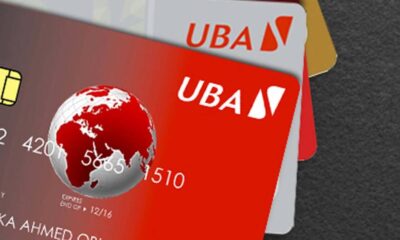

UBA Earns Top 5 Spot In Customer Experience Survey, Shines In SME And Retail Banking
-


UBA Donates N500 Million To Lagos State Security Trust Fund, Pledges Support For State’s Effort At Improving Security [PHOTOS]
-


UBA Heralds Festive Season, Lights Up Lagos Marina Garden [PHOTOS]
-


UBA Group To Commence Full Banking Operations In France
BIG STORY
Marketers Warn Against Disruption As Dangote Plans Direct Fuel Supply
Published
6 hours agoon
August 1, 2025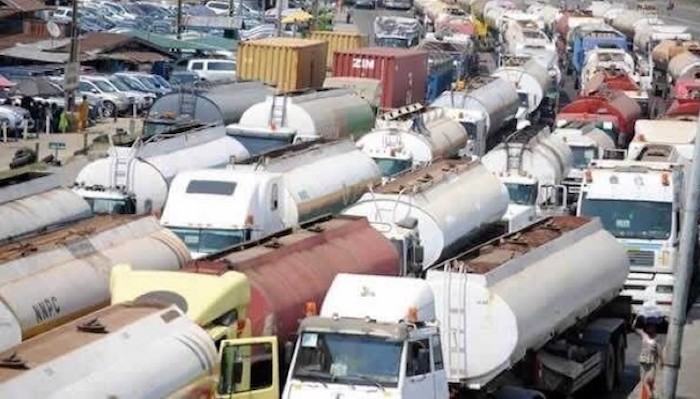
NOGASA and PETROAN have raised concerns over Dangote Petroleum Refinery’s intention to bypass the traditional distribution framework and supply refined products directly to end users. They warn that this could result in nationwide disruption, long-term shortages, and a breakdown of the current supply chain.
The oil suppliers urged Dangote Refinery to reconsider and engage in further discussions before launching direct distribution. They highlighted the failure of refineries under NNPCL as a precedent and appealed to President Bola Tinubu to step in, emphasizing that Dangote alone cannot manage national distribution sustainably. Bennett Korie, NOGASA’s national president, made this appeal during the group’s Annual General Meeting in Abuja.
In response, a Dangote Group official dismissed the objections, describing them as “anti-Nigeria” and insisting that the plan is intended to eliminate petrol logistics costs nationwide.
Billy Gillis-Harry, President of the Petroleum Products Retail Outlet Owners Association of Nigeria, supported NOGASA’s position. He urged Nigerians to be cautious in celebrating Dangote’s announcement.
On Thursday, depot petrol prices jumped from N815 to N870 per litre — a 7% increase — as the rift unfolded.
The $20bn Dangote refinery recently announced plans to deploy 4,000 CNG-powered tankers to deliver petrol and diesel directly to bulk consumers, skipping traditional intermediaries. These trucks are expected to begin operations by August 15. This initiative, backed by a N720bn investment, could save Nigeria N1.7tn annually and support 42 million MSMEs through reduced energy expenses and improved business margins.
Dangote says the programme aligns with its goal to cut logistics costs, improve energy efficiency, and support national economic growth.
Korie warned that if retail outlets are pushed out, reestablishing supply lines during any refinery disruption would be difficult. He noted that bundling refining, distribution, and retail under one entity is risky, citing how NNPCL’s move into direct retailing led to the collapse of its refineries.
He emphasized that NOGASA supports the refinery’s production efforts but sees direct distribution as a serious risk. Korie explained that “You are blending, you are refining, and at the same time operating, and again, add a filling station in your operation. You will have a problem.” He urged Dangote to focus solely on refining and selling to marketers who would then distribute.
Korie reaffirmed NOGASA’s willingness to collaborate with Dangote Refinery for mutual success but warned against monopolistic tendencies. “The entire giant’s indirect distribution of their products with the purchase of 4,000 distribution trucks for nationwide supply makes us worried about staying in the business,” he said, noting that many small suppliers depend on the existing system.
He also pointed out that over 50,000 filling stations and the jobs they provide could be at risk. Korie called for the government to initiate dialogue between Dangote Group and key players in the sector.
Billy Gillis-Harry echoed similar concerns, warning that Dangote’s full control of refining, logistics, and pricing could mirror past outcomes seen in the cement industry. “Because I want to draw your attention to the fact that we also have similar situations in our cement industry,” he noted, pointing to price hikes and loss of competition.
Gillis-Harry reported that retail outlet owners are losing up to N80 per litre, making it difficult to stay in business. He urged authorities to step in with pricing controls, ensure crude access for local refiners, and protect industry jobs.
Dangote reacts
A Dangote Group official expressed disbelief that fuel supply might be disrupted simply because someone aims to “distribute fuel for free.” The official argued that eliminating logistics costs would benefit Nigerians and wondered why this was being opposed.
He questioned the claim that NOGASA members would be displaced, stating that “The market is big enough.”
He pointed out that 4,000 trucks can’t possibly serve 774 LGAs alone and dismissed concerns of monopoly or job loss, adding that “Dangote is not saying, ‘don’t do your business.’”
IPMAN National Vice Chairman, Hammed Fashola, said he was unsure if NOGASA has the strength to disrupt distribution, but acknowledged that players are concerned about their survival.
“Everybody wants to make sure they remain in business,” Fashola said, noting that many in the supply chain might feel threatened. He expressed optimism that dialogue could align all interests.
Depots hike prices
Depot petrol prices surged by 7% from N815 to N870 per litre, following Dangote refinery’s sudden halt in petrol sales at its terminals. This has increased market volatility and added to price pressures.
A memo titled “Important Update on DPRP Collection Account for PMS” instructed marketers to stop payments for loading at the refinery’s gantry until further notice.
Meanwhile, importers have lowered their prices, triggering fresh competition. But depots soon responded by raising prices, citing global crude increases. Data from petroleumprice.ng showed that major depots including NIPCO, Aiteo, Rain Oil, MenJ, Sahara, and Aipec now sell at N870 per litre, while Dangote’s depot offers slightly lower at N865.
Credit: The Punch

Importers have slashed petrol prices lower than what the Dangote Petroleum Refinery offers, triggering a new wave of competition. This development follows a recent appeal by the President of the Dangote Group, Alhaji Aliko Dangote, urging the Federal Government to ban fuel importation.
According to The Punch, some fuel stations are now selling petrol below N860 per litre, whereas Dangote’s partners like MRS and Heyden are retailing between N865 and N875 in Lagos and Ogun States.
One filling station, SGR in Ogun, dropped its price to N847 per litre on Tuesday. Marketers confirmed to The PUNCH that most importers have adjusted their ex-depot petrol prices to undercut Dangote’s rates.
As of Tuesday, Dangote refinery’s petrol was selling at N820 per litre, while some depots priced theirs at N815. Data from Petroleumprice.ng showed that Aiteo, Menj, and others had petrol priced at N815/litre.
It was gathered that importers are strategically pricing their products to stay afloat. Many had earlier complained about incurring losses when the 650,000-barrels-per-day Dangote refinery began regular price reductions earlier this year.
Chinedu Ukadike, National Publicity Secretary of the Independent Petroleum Marketers Association of Nigeria, confirmed the ongoing price reductions by importers.
“Depot owners are dropping their petrol prices. Some of them are selling N815, some are selling N817, while Dangote is selling N820. NNPC is still selling at N825; it has not dropped its prices yet,” Ukadike said.
He praised this trend as a positive sign of a liberalised market and advised President Bola Tinubu not to consider banning fuel imports.
“This is the beauty of the liberalisation of the market. That is why we opined that the President should not ban anybody from importing petroleum products. Nobody should be stopped from bringing in petroleum products. That is the beauty of opening up the market. Implementation and local refining will checkmate unfair pricing. As an indigenous country, you must refine to ensure that you have the best price,” Ukadike added.
Addressing concerns over substandard fuel being brought into the country, Ukadike noted that the Nigerian Midstream and Downstream Petroleum Regulatory Authority exists to monitor such issues.
Currently, it appears importers are challenging Dangote by aggressively cutting prices, a move Dangote recently called “unfair competition.” According to him, fuel imports into Nigeria are undermining domestic refining and deterring further investments in the energy sector and wider economy.
To sustain local operations, he urged African governments to take protective measures like the United States, Canada, and the European Union have done.
Dangote stated that the “Nigeria First” policy announced by President Bola Tinubu should be extended to the petroleum product industry. “The Nigeria First policy announced by His Excellency, President Bola Tinubu, should apply to the petroleum product sector and all other sectors,” he said.
Dangote is calling for a ban on the importation of locally available products such as petrol and diesel. He argued that local refiners are struggling to compete due to what he termed “dumping,” and claimed importers are bringing in substandard fuels that wouldn’t be allowed in Europe.
“And to make matters worse, we are now facing increased dumping of cheap, often toxic petroleum products, some of which are blended to substandard levels that would never be allowed in Europe or North America,” he said.
He also said some importers are supplying subsidised petroleum products or crude oil from Russia, which negatively impacts domestic pricing and forces local refiners to sell below production cost.
“Due to the price caps on the Russian petroleum products, discounted petroleum products produced in Russia or with discounted Russian crude find their way to Africa, severely undercutting our local production, which is based on full crude pricing. This has created an unlevel playing field in most African countries. Petrol and diesel are sold for about a dollar net of taxes.
“In Nigeria, due to this unfair competition, this price is just about 60 cents, even cheaper than Saudi Arabia, which produces and refines its own oil. This is due to the fact that we are having too much dumping. To remain viable, we urge the governments across Africa to take deliberate steps as the United States, Canada, and the European Union have done to protect domestic producers from unfair competition,” he said during an event hosted by the Nigerian Upstream Petroleum Regulatory Authority in Abuja.
However, marketers opposed Dangote’s request, urging the Federal Government not to place petroleum products on the import ban list under the “Nigeria First” policy.
BIG STORY
BUSINESS: Fuel War Brews As Dangote Presses President Tinubu To Ban Imports
Published
4 days agoon
July 28, 2025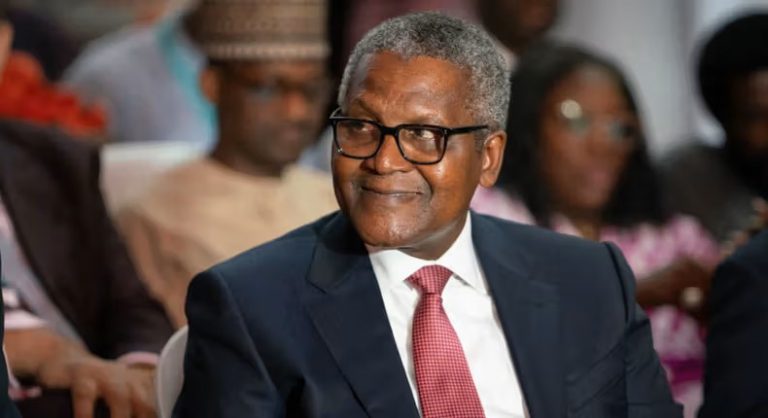
The President of the Dangote Group, Alhaji Aliko Dangote, urged President Bola Tinubu to include refined petroleum products on the list of items restricted under the ‘Nigeria First’ policy of the Federal Government. However, oil marketers and industry analysts opposed the proposal on Sunday.
The ‘Nigeria First’ policy restricts government agencies from importing goods that can be produced locally. In May, Tinubu instructed that agencies should not procure foreign goods or services already available in Nigeria unless they obtain a waiver from the Bureau of Public Procurement.
Speaking at the Global Commodity Insights Conference on West African Refined Fuel Markets—organized by the Nigerian Midstream and Downstream Petroleum Regulatory Authority in collaboration with S&P Global Insights—Dangote called for petrol, diesel, and other refined petroleum products to be added to the policy’s restricted items.
He argued that fuel importation undermines local refining and discourages further investment in the sector and economy. He called on African governments to adopt protective measures similar to those of the United States, Canada, and the European Union to defend domestic producers from “unfair competition”.
Dangote emphasized that the “Nigeria First policy announced by His Excellency, President Bola Tinubu, should apply to the petroleum product sector and all other sectors.”
His proposal aimed to restrict imports of petrol, diesel, and other locally refined products. He stated that local refiners struggle to sell their products due to what he termed as dumping. He accused importers of flooding the market with toxic fuel unfit for sale in Europe.
“And to make matters worse, we are now facing increased dumping of cheap, often toxic petroleum products, some of which are blended to substandard levels that would never be allowed in Europe or North America,” he said.
He also noted that some of these imports include fuel or crude oil subsidised in Russia, which distorts local pricing and forces refiners to sell below cost.
“Due to the price caps on the Russian petroleum products, discounted petroleum products produced in Russia or with discounted Russian crude find their way to Africa, severely undercutting our local production, which is based on full crude pricing. This has created an unlevel playing field in most African countries. Petrol and diesel are sold for about a dollar net of taxes.
“In Nigeria, due to this unfair competition, this price is just about 60 cents, even cheaper than Saudi Arabia, which produces and refines its own oil. This is due to the fact that we are having too much dumping. To remain viable, we urge the governments across Africa to take deliberate steps as the United States, Canada, and the European Union have done to protect domestic producers from unfair competition,” he stated.
Dangote clarified that this move was not about monopolising the sector but encouraging local investment. He criticised wealthy Nigerians for investing abroad while criticising those building within the country.
“Let me take this opportunity to address concerns around monopoly and dominance. The reality is that too many people who have the means and the opportunity to contribute meaningfully to our nation’s growth choose instead to criticise from the sidelines while investing their wealth abroad,” Dangote said.
He revealed that his $20bn refinery has exported approximately 1.35 billion litres of petrol within 50 days, positioning Nigeria as a net exporter of petroleum products.
“Today, Nigeria has actually become a net exporter of refined products. Before I came on the podium, I asked my people how many tonnes of PMS we have actually exported. From June beginning to date, we have exported about 1 million tonnes of PMS, within the last 50 days,” he said.
Marketers tackle Dangote
Oil marketers rejected Dangote’s request, urging the government to continue allowing fuel importation.
The National Publicity Secretary of the Independent Petroleum Marketers Association of Nigeria, Chinedu Ukadike, told our correspondent that banning imports would damage the sector.
“We independent marketers will depart from that request. If the government does that, that means we will not be able to check inflation and monopoly, since it is the only refinery operating in the country now. We should continue to import even as we buy locally.
“I heard that the NMDPRA stated clearly that Dangote cannot produce all the fuel that the country needs. We will appreciate it if the country allows importation to continue since we are not paying subsidy,” Ukadike said.
Responding to Dangote’s claim that importation would harm local businesses, Ukadike disagreed. “Importation won’t kill local businesses or refineries; it will strengthen them. It will ensure local refineries step up their game. I don’t agree with Dangote on this,” he said.
The National President of the Petroleum Products Retail Outlet Owners Association of Nigeria, Billy Gillis-Harry, also opposed banning fuel imports. He argued that a free economy must avoid monopolies and maintain diverse energy sources.
“I don’t agree with Dangote. We are running a free economy. There’s no reason why any one company should have an overarching value on the entire industry.
“Importation is not killing the economy. Importation is stabilising the sources of petroleum products. Importation of all products is useful. However, those that can be produced in Nigeria, like toothpicks, garri, egusi soup, cassava, and others like that, should be banned.
“But importation of refined petroleum products should not be banned because it helps to ensure that there are multiple sources of energy and replenishment,” Gillis-Harry stated.
Expert reacts
Professor Dayo Ayoade from the University of Lagos warned that banning petroleum imports could lead to monopolistic control.
“No, we cannot have a ban on petroleum imports. It’s not a legal ban. That would not be acceptable because we don’t have diverse sources for petroleum products. We can’t rely solely on the Dangote refineries. That would give a monopoly to a private individual.
“And for the reasons of energy security and national security, that would be completely unacceptable. The government should continue to encourage, liberalise, and ensure other refineries come upstream. NNPC may want to privatise or sell off its refineries, then that’s fine. But we need to have a better base of product market before we now start to say we want to ban imports,” he said.
He added that international trade law doesn’t support outright bans.
“And you know, when we talk about bans, we have to look at international trade. International trade law does not really sit well with banning things. So, we have to be clever about how we do it. But if the market is ripe, it will be more expensive to bring in things from other countries than our own products, provided they are of sufficient quantity and the quality is fine,” the don submitted.
More refineries
At the NMDPRA conference, Dangote called for more refineries and urged the withdrawal of dormant licences.
The IPMAN spokesman agreed. “On that side, I agree with him. You can’t obtain a licence to build a refinery and use it to decorate your house. The nation needs more refineries to do more exports.”
Dangote reiterated that his refinery could meet Nigeria’s fuel needs and said efforts to undermine the facility through importation were harmful. He revealed the refinery is targeting 700,000 barrels per day capacity by December, up from the current 650,000 BPD.
Last Friday, Dangote stepped down as Director and Chairman of Dangote Cement’s Board of Directors. The Group’s Chief Branding & Communications Officer, Anthony Chiejina, said he was focusing on the $20bn refinery, petrochemicals, fertiliser, and government relations.
The refinery is currently receiving 4,000 compressed natural gas-powered trucks for its free fuel delivery scheme starting August 1. The initiative will provide petrol, diesel, and aviation fuel directly to filling stations and bulk users such as telecom companies.
Credit: The Punch
Most Popular
-

 BIG STORY4 days ago
BIG STORY4 days agoJUST IN: SDP Expels El-Rufai, Slams 30-Year Ban Over Alleged False Membership, Forgery
-
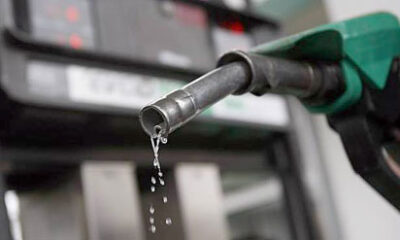
 BIG STORY2 days ago
BIG STORY2 days agoMarketers Drop Petrol Prices Below Dangote’s Cost
-
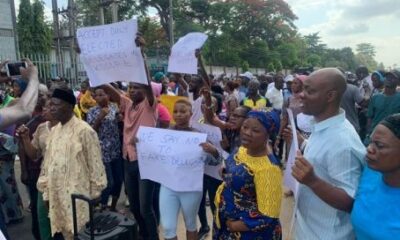
 BIG STORY4 days ago
BIG STORY4 days agoJUST IN: APC Members Protest In Lagos, Demand Removal Of State Chairman
-

 BIG STORY4 days ago
BIG STORY4 days agoBREAKING: President Tinubu Rewards Super Falcons With $100,000, National Honours, 3-Bedroom Apartments Each [VIDEO]
-
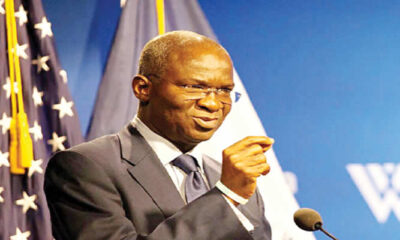
 BIG STORY2 days ago
BIG STORY2 days agoStreet Naming: Lagos History Must Be Preserved — Former State Governor Fashola
-

 BIG STORY3 days ago
BIG STORY3 days agoWike Has Capacity To Deliver On Tinubu’s Vows To Falcons Without Delay — Appolos
-
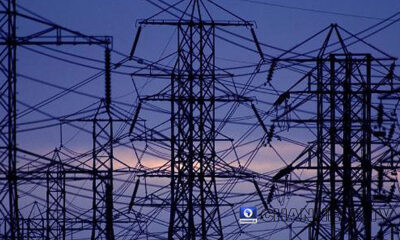
 BIG STORY4 days ago
BIG STORY4 days agoBlackout Looms In Lagos As TCN Begins 25-Day Maintenance Work On Monday
-

 BIG STORY23 hours ago
BIG STORY23 hours ago2Baba Ties Knot With Natasha Osawaru In Private Ceremony [PHOTOS]







